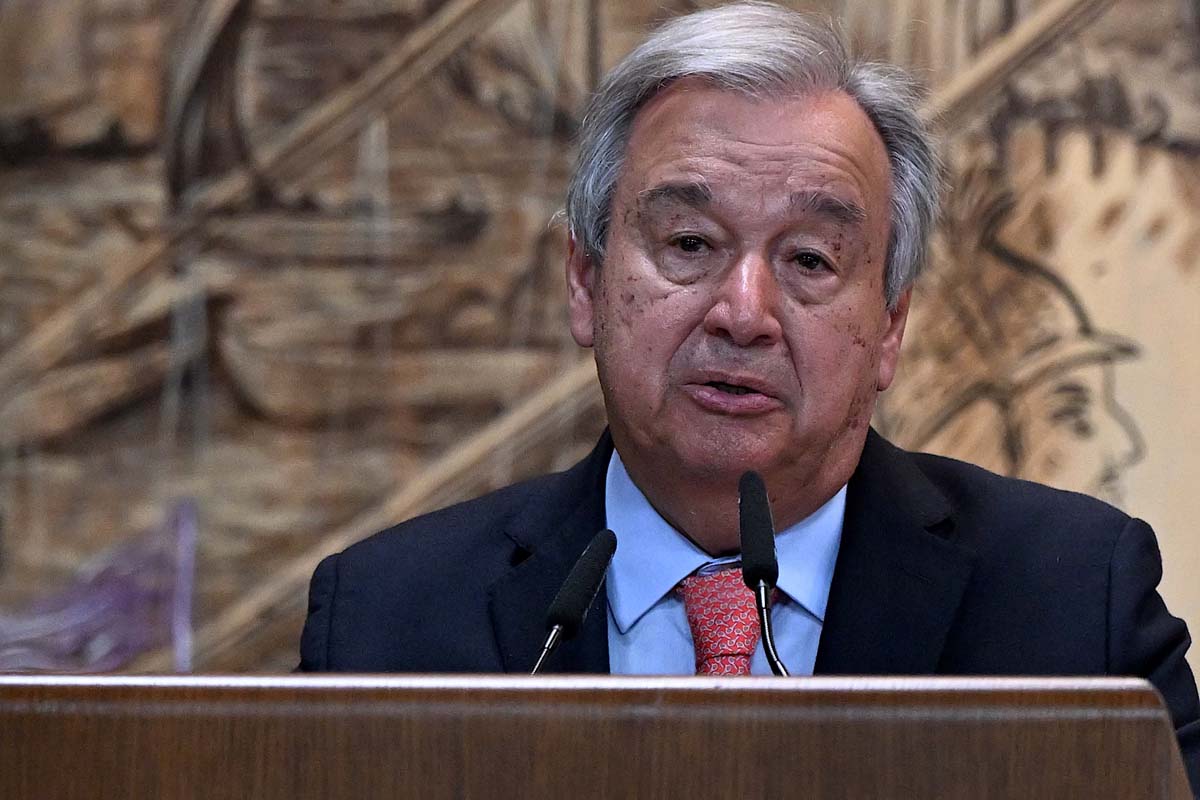
403
Sorry!!
Error! We're sorry, but the page you were looking for doesn't exist.
UN chief warns of ‘terrible escalation’ of fighting in El Fasher
(MENAFN) UN Secretary-General Antonio Guterres on Monday expressed deep concern over a significant intensification of fighting in Sudan’s famine-hit city of El Fasher, where paramilitary Rapid Support Forces (RSF) claim to have taken full control.
Since April 2023, clashes between Sudan’s army and the RSF have left tens of thousands dead and triggered the world’s largest hunger and displacement crises. RSF leaders announced Sunday that El Fasher—the last major city in western Darfur outside their control—has fallen, potentially marking a turning point in the protracted civil war.
“This represents a terrible escalation in the conflict,” Guterres said, adding that “the level of suffering that we are witnessing in Sudan is unbearable.” Analysts suggest the conflict could effectively divide Sudan, with the army controlling the north, east, and central regions, while the RSF dominates Darfur and parts of the south.
Guterres highlighted the role of foreign interference, stating at a news conference in Malaysia: “It's high time for the international community to tell clearly, to all countries that are interfering in this war, and that are providing weapons to the parties to the war, to stop doing that.” He emphasized that the conflict is no longer purely internal, noting that external involvement hampers prospects for a ceasefire or political resolution.
The roots of the RSF trace back to 2003, when then-dictator Omar al-Bashir deployed Janjaweed militias against non-Arab communities in Darfur, resulting in around 300,000 deaths and nearly 2.5 million people displaced. Key RSF leaders were formerly part of the Janjaweed.
Since April 2023, clashes between Sudan’s army and the RSF have left tens of thousands dead and triggered the world’s largest hunger and displacement crises. RSF leaders announced Sunday that El Fasher—the last major city in western Darfur outside their control—has fallen, potentially marking a turning point in the protracted civil war.
“This represents a terrible escalation in the conflict,” Guterres said, adding that “the level of suffering that we are witnessing in Sudan is unbearable.” Analysts suggest the conflict could effectively divide Sudan, with the army controlling the north, east, and central regions, while the RSF dominates Darfur and parts of the south.
Guterres highlighted the role of foreign interference, stating at a news conference in Malaysia: “It's high time for the international community to tell clearly, to all countries that are interfering in this war, and that are providing weapons to the parties to the war, to stop doing that.” He emphasized that the conflict is no longer purely internal, noting that external involvement hampers prospects for a ceasefire or political resolution.
The roots of the RSF trace back to 2003, when then-dictator Omar al-Bashir deployed Janjaweed militias against non-Arab communities in Darfur, resulting in around 300,000 deaths and nearly 2.5 million people displaced. Key RSF leaders were formerly part of the Janjaweed.

Legal Disclaimer:
MENAFN provides the
information “as is” without warranty of any kind. We do not accept
any responsibility or liability for the accuracy, content, images,
videos, licenses, completeness, legality, or reliability of the information
contained in this article. If you have any complaints or copyright
issues related to this article, kindly contact the provider above.


















Comments
No comment